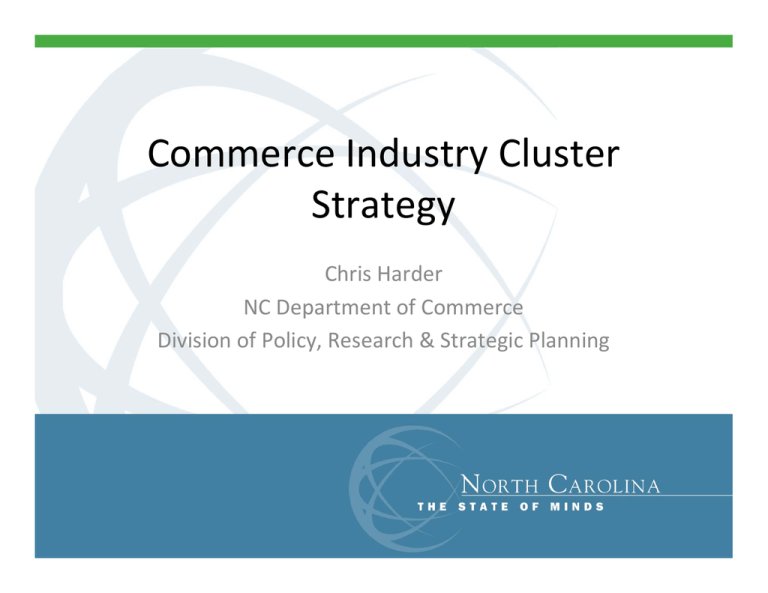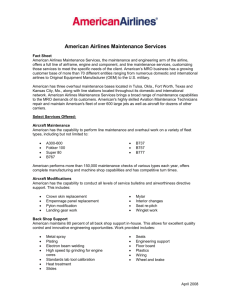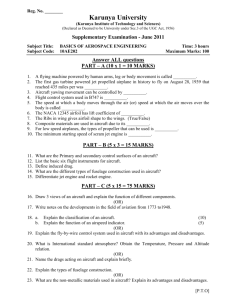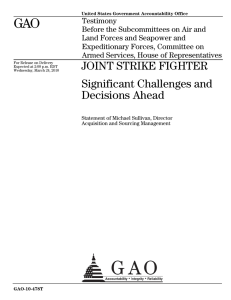Commerce Industry Cluster Strategy Chris Harder NC Department of Commerce
advertisement

Commerce Industry Cluster Strategy Chris Harder NC Department of Commerce Division of Policy, Research & Strategic Planning The Purpose Behind Targeting Industries and Clusters • The goal of strategic economic development is to guide NC’s economy with foresight – Industry clusters are one strategy used to address the question of foresight • Strategic analysis (effectively utilize limited/scarce resources) • Priority setting (planning for the future) Why Develop Industry Clusters? Competitive advantages for companies: • • • • • Companies can draw from specialized labor pools More efficient and expedient supply chain Integrated infrastructure Knowledge spillovers Greater opportunities to share best practices and innovative technologies. Competitive advantages for N.C.’s economy: • Reduces economic leakage; more economic activity within N.C. • Increases export base and job growth (increase multipliers) Commerce uses cluster analysis to: • Strategically target industries ‐ Recruitment and Expansion ‐ Proactive marketing strategies ‐ Identify and leverage buyer‐supplier relationships • Inform workforce development strategies ‐ Align education, training and skill development programs with target industries • Other: Identify export/trade potential; rural development strategies, etc. Existing Target Industry Clusters • Aerospace and Aviation • Advanced Manufacturing • Automotive, Truck and Heavy Equipment • Biotechnology/Life Sciences • Business and Financial Services • Chemicals, Plastics and Rubber • Forest Products/Agribusiness Furnishings Green Energy Healthcare Services Military/Defense Information and Communications Technologies • Textiles • Transportation, Logistics and Distribution • • • • • Example Analysis ‐ Aerospace/Aviation 1. Identify core Aerospace/Aviation industries 2. For each core industry, identify supply chain industries • Use U.S. & N.C. input‐output tables • Industries significantly linked through trade. 3. Benchmark the competitiveness of each core‐industry and their supply‐chain in NC against the nation as a whole • Employment growth, concentration, wages, output, etc. • Tool developed by UNC‐CH to monitor and track clusters and their supply chains on an ongoing basis. Aerospace/Aviation ‐ Core Industries in U.S Aircraft Manufacturing Guided Missiles and Space Vehicles Air Transportation Support Activities Aircraft Engine & Engine Parts Manufacturing Propulsion Units & Parts Manufacturing Search, Detection, and Navigation Instruments Other Aircraft Parts & Auxiliary Equipment Air Transportation Broadcast & Wireless Communications Equipment Supply Chains Supplier Industry Buyer Industry Buyer Industry Supplier Industry Core Industry Buyer Industry Supplier Industry Supplier Industry Buyer Industry Inputs & outputs of product and service markets U.S. Supply Chain Aircraft Engine & Engine Parts Manufacturing Broadcast & Wireless Communications Equipment Aircraft Manufacturing Air Transportation Nonferrous Metal Foundries Aircraft Engine & Engine Parts Scientific Research & Development Specialized Design Services Metal Valve Manufacturing Guided Missiles and Space Vehicles N.C. Value Chain Aircraft Engine & Engine Parts Manufacturing Broadcast & Wireless Communications Equipment Aircraft Manufacturing Air Transportation Nonferrous Metal Foundries Aircraft Engine & Engine Parts Scientific Research & Development Specialized Design Services Metal Valve Manufacturing Guided Missiles and Space Vehicles Blue = industry linked in NC; White = industry not linked in NC Conclusion • Clusters utilize information on existing companies and industries, and the relationships between them, to determine industry strengths, weaknesses, opportunities and threats • Well developed clusters increase company and industry competitiveness • Cluster data can be used to: 1. 2. 3. 4. Market industry strengths Target recruitment efforts Broker services for existing industries and companies Inform workforce development strategies • Use in coordination with other ED strategies (market analysis, trade, workforce development, etc.) Questions? Contact: Chris Harder Director of Economic Analysis Policy, Research & Strategic Planning charder@nccommerce.com 919‐715‐1025




